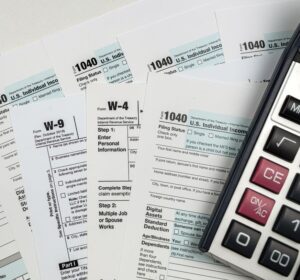It’s a common challenge – you need a small business loan to help your business meet its goals, but the lender requires collateral to secure the loan. Maybe your business doesn’t have many assets, or you don’t want to offer any personal assets on the loan.
Many small business lenders require collateral to secure the loan. Collateral is a business or personal asset the borrower uses to secure the loan. It can be physical, like your personal vehicle, or business equipment. Or, it can be a financial asset, like cash equity in your business or investments. Lenders often require collateral to minimize their risk in accepting the loan. In the event the borrower defaults on the loan and is unable to pay, collateral can be seized by the lender.
In a small business loan, borrowers often use business assets such as property, equipment, or inventory stock as loan collateral. Traditional bank lenders or the Small Business Loan Administration (SBA) often will ask for collateral on a loan if a borrower meets certain requirements. However, not every business owner wants to take on that risk of losing assets. Let’s dive into the ways alternative lenders make it more accessible for business owners to get financing without collateral.
How do business loans without collateral work?
A lender’s need for collateral is dependent on the type of loan or financing you need, the funding amount requested, credit history, cash flow reserves, age of your business, and annual revenue. For example, if your business has been profitable over a few years and has excellent credit, a lender is much less likely to demand collateral on a $100,000 loan. Essentially, the better your loan application looks and the stronger case your business presents, the less likely it is a lender will require collateral.
While it’s common for banks or the SBA to require collateral on a loan application, many alternative lenders offer business loans with a personal guarantee and UCC filing in lieu of collateral.
What is a personal guarantee in business loans?
A personal guarantee is a common provision in a loan agreement and it’s fairly simple. A personal guarantee states the borrower is personally responsible for the business’ debt in case of loan default. Essentially, the business owner – or whoever is primarily taking out the business loan – acts as the guarantor on the loan. This guarantee lessens the lender’s risk in accepting the loan and offers a better alternative than collateral for the borrower. A personal guarantee saves the borrower from having to assign their business or personal assets to the loan.
What is a UCC filing?
A UCC filing or “uniform commercial code” filing is part of a set of nationwide laws to govern sales and commercial transactions. A UCC filing indicates a lender has a secured interest in the personal or business property of a debtor and protects the interest of the lender in the loan agreement. Often, a UCC filing will stipulate if a debt is not repaid, then the lender has the right to the borrower’s assets to offset any losses incurred.
Options for a small business loan without collateral
Unsecured short-term loans
Short-term loans are typically repaid within 6-18 months and if it does not require collateral, then it’s common for a short-term loan to stipulate a personal guarantee in the loan agreement. Short-term loans are best suited for businesses who need funds quickly to meet immediate business goals – meeting payroll, paying vendors, or fulfilling large orders.
Unsecured business line of credit
Unsecured business line of credit doesn’t require any physical collateral, but because this puts you at higher risk, many lenders may charge higher interest rates and still require a personal guarantee. That aside, an unsecured business line of credit works just like any line of credit, where the borrower can draw from a set limit of funds and pay interest on the funds borrowed.
SBA loans
Some SBA loans – such as the 7(a) and disaster loans – can be approved without collateral for funds up to $25,000. For loan amounts greater than $25,000, collateral might be required.
Equipment financing
Small businesses can purchase or lease equipment without offering collateral. Equipment leasing means the lender owns the equipment for the duration of the lease, and with equipment financing, the lender considers the equipment itself as collateral, so the borrower does not need to offer up any additional collateral for the loan agreement.
Invoice factoring
Invoice factoring allows businesses to sell their unpaid invoices to third-party vendors so that a business can improve its cash flow. It’s often used by new or growing businesses who may not qualify for a business loan, yet still need improved cash flow for operations. The unpaid invoices themselves act as collateral for the financing, yet some lenders may require a personal guarantee to approve the financing agreement.
Four steps to get a no-collateral business loan
Explore options for business loans with no collateral
Consider the following when you’re looking to get financing for your business and want to avoid collateral:
- How much funding do you need?
- What will you use the funds for?
- Can you offer collateral, a personal guarantee, or a UCC filing? What works best for your business?
If your business needs short-term funds up to $25,000, an SBA loan or business line of credit may work best. Alternatively, for larger funding amounts, a short-term loan with a personal guarantee may be best for your business. For equipment needs, equipment financing is the best fit for your business.
Determine what your business qualifies for
It’s common for lenders to require stricter qualifications for a no-collateral loan, due to the increased risk lenders carry. For instance, banks may require an excellent credit history, no prior defaults, and at least two years in operation. On the other hand, alternative lenders offer much less stringent qualifications. Our SmallBusinessLoans partners typically require fair to excellent credit, at least $250,000 in revenue, and at least six months in business. No collateral business loans may have slightly different requirements, but generally, alternative lenders ask for a personal guarantee and UCC filing. Make sure you understand the qualification requirements before you start a loan application and have an idea of what type of loan you can afford.
Be prepared to offer a personal guarantee or UCC filing
Without collateral on a loan, it’s extremely likely you’ll be asked to sign a personal guarantee or UCC filing as part of the loan agreement. A personal guarantee and/or UCC filing reduces the risk for the lender and increases the likelihood of you getting approved.
Consider the T&Cs of the loan before signing
Carefully look over the loan terms before signing the loan agreement. Consider loan terms such as the duration of the loan, interest rate, and repayment frequency as they can all be inflated compared to loans with collateral. You can likely expect to pay a higher interest rate with no collateral compared to a loan with collateral. If the terms meet your business needs and are feasible for your business, then you can accept the agreement and sign the loan. Funding for your business without collateral isn’t impossible, just make sure you understand the options and know what works for your business.

















